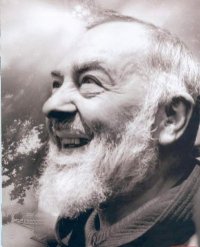 Advice on Recreation from a Novice Master, edited
Advice on Recreation from a Novice Master, edited
(Religious Life, May-June 2011 )
“I told you I wanted to write you something on recreation, so here it is. I think I would like to talk about the virtuous nature of recreation. Aristotle has a virtue he calls eutrapelia that is the virtue found in games. It is a part of the virtue of temperance and consists in enjoying activity in moderation which is done for no other purpose than because you like it. We call it play.
“First, it is important to state that contemplation of divine truth is the deepest, highest and most human of our activities. All men must experience it. Grace gives all Christians the ability to do this, but especially priests and religious. Even Aristotle stated that the contemplation of divine truth is the happiness of man in this life and the reason we do all the ethical actions we do. You must always pursue contemplation and for that reason, some leisure is necessary for you.
“When St. Thomas Aquinas examines the virtue of eutrapelia, he does so first by explaining that though contemplation of God’s truth is the highest human activity, because it is so deep, a person cannot be always engaged in it. Just as the body needs to experience rest, so the soul needs to be relaxed too. This is not to pursue relaxation in itself, but because of the need to return refreshed to deeper activities. Recreation has no useful purpose except to pursue it because you enjoy it.
“St. Thomas talks about a story told in the Conferences of John Cassian. He evokes an apocryphal story from Cassian that John the Beloved Disciple was once playing a game with his follower and bystanders observing this scene reproved him for this. He asked one of the critics who had a bow to shoot an arrow and when he had done this he asked him to do this indefinitely. The man answered that he could not because the bow would break. John the Beloved Discipline drew the lesson from this that man’s mind would break if there [were] never a relaxation of tension. Your soul must delight in playful and humorous actions so that when you relax your soul, you can prepare it to be more involved in deep and divine things later. There are some important things to consider about this, though.
“…one can seek fun too much. Legitimate recreation can be an excuse for perpetual adolescence. Men in general and priests and religious in particular are often spiritually absent from their families or parishes because they are constantly recreating outside the home or parish…[or]being absent from the spouse or the kids because one wants to watch games or other things on TV, all of these types of things are signs of a lack of appreciation of the spiritual role of fatherhood.
“…The Fathers of the Council of Trent saw as one of their principle disciplinary reforms the residency requirement for ecclesiastical superiors. This is because the ministry of presence is so important….Can a father fail to answer the cries of his children even if they occur in the middle of the night? Of course, there are people who impose themselves rudely on one’s time. One must have the wisdom to distinguish between the rude imposition and the soul genuinely distressed.
“By the same token, moderation in this regard demands that one not be a bore. St. Thomas Aquinas says it well: “In human affairs whatever is against reason is a sin. Now it is against reason for a man to be burdensome to others by offering no pleasure to others, and by hindering their enjoyment. “ (ST, II-II, 168, 4, corp.) St. Thomas also warns that a sense of humor is like salt in food. A little goes a long way, but one must still have it.
“Never be a bore to others. Legitimate recreation requires that one should try to find the humorous sign in most things. Making life more livable for others is a beautiful quality and a sense of humor goes a long way in this regard. Remember, there is no real humor in hell.”
Yours in Christ,
Father Aquinas



